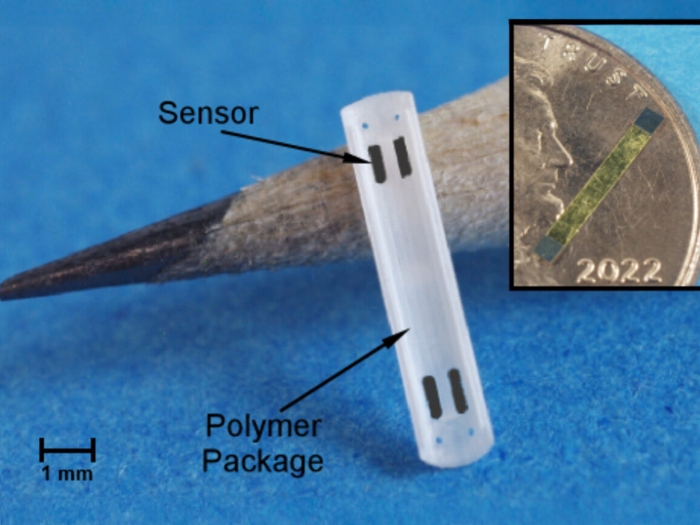On June 18, 2024, the Department of Microbiology and Immunology (M&I) celebrated 25 years of its NIH T32 training grant that supports the Molecular Mechanisms in Microbial Pathogenesis Training Program (MMMP).
This NIH T32 training grant greatly impacts M&I’s trainees: since its first funding, this grant has supported 60 doctoral and postdoctoral trainees in the field of microbial pathogenesis through MMMP. This program provides comprehensive training and professional development opportunities for predoctoral and postdoctoral fellows passionate about uncovering and translating new knowledge in the field of microbial pathogenesis and the biology of host-microbe interactions.
MMMP focuses on the three pillars of microbial pathogenesis research:
- Microbial pathogenesis - how viral, bacterial, fungal and parasitic pathogens cause disease;
- Host response to microbial pathogens - how innate or adaptive immune systems control infection;
- Microbiome restriction of disease - how commensal microbes keep us healthy to limit microbial pathogenesis.
Victor DiRita, Ph.D., then a professor in M&I, initiated the MMMP program in the 1990s and successfully proposed the first M&I T32 training grant to the NIH in 1997. He was MMMP program Director and the T32 training grant Director until 2015. In this role, he was succeeded by Vern Carruthers, Ph.D., and Associate Director Adam Lauring, M.D., Ph.D.,
As the Director of MMMP, Vern Carruthers greatly enjoys working with the MMMP trainees and seeing them flourish both within the program and beyond.
“It’s immensely gratifying to see MMMP trainees develop into exceptional researchers and scholars during their time in the program and thereafter in their careers.”
—Vern Carruthers, Ph.D., MMMP Program Director
The current MMMP T32 training grant expires in 2025, and M&I is in the process of renewing it.
The Scientific Symposium
This scientific symposium was held June 18, 2024, and gathered faculty and trainees who presented and discussed their research on molecular mechanisms of microbial pathogenesis.
JoAnne Flynn, Ph.D., Distinguished Professor and Chair of the Department of Microbiology and Molecular Genetics at the University of Pittsburgh, opened the meeting with a presentation titled: “Unraveling protection against tuberculosis.” Her studies seek to discover more effective vaccines against TB. She reminded the audience of the importance of this research: there are 10 million active TB cases every year, with approximately 1.5 million deaths per year. Most people who get active TB were vaccinated with Bacillus Calmette–Guérin (BCG) at birth.
“There are 10 million active TB cases every year, with approximately 1.5 million deaths per year. Most people who get active TB were vaccinated with BCG at birth.”
M&I trainees also presented their research: Olivia Harlow (Shenoy lab) - “Pneumococcal pore forming toxin influences lung resident adaptive immunity”; Katy Krupinsky (Kirschner and Lauring labs) - “Elucidating the drivers and fates of lymph node infection during pulmonary Tuberculosis”; Mark Adame (Dickson lab) - “Acetate, a gut microbial metabolite, correlates with disease severity in experimental sepsis”; Divya Kolli (Chapman lab) - “The devil wears Curli: A bacterial chaperone's story”; Adam Hafner (Wobus lab) - “Norovirus alters host metabolism for efficient virus replication”; Mike McFadden (O'Riordan lab) - “Non-canonical activation of IRE1a during fungal infection enhances macrophage fungicidal activity”; Shelby Kesterson (Telesnitsky lab) - “Investigating the dynamics of proviral silencing in polyclonal HIV-1 infected Jurkat cell populations.”
In her presentation on pneumonia, Olivia Harlow also stressed the prevalence of pneumonia, worldwide:
“Pneumonia is the leading infectious cause of death in children worldwide, and, in 2016, 35% of adult patients in the US who were hospitalized with pneumonia died within a year after.”
David Sullivan Jr., M.D., Professor in the Department of Microbiology and Immunology at Johns Hopkins University, concluded the event with his presentation title: “Early high dose COVID-19 convalescent plasma reduces outpatient hospitalizations.”
Vern Carruthers hosted the event and especially thanked Adam Lauring for his dedication to MMMP as its Associate Director, a position from which he will step down as of June 30, 2024 to pursue other emerging commitments. MMMP is excited to welcome Dr. Vincent Young, M.D. Ph.D. as the next Associate Director for the program.
M&I is very grateful for NIH’s support of its trainees and its pathogenesis research.
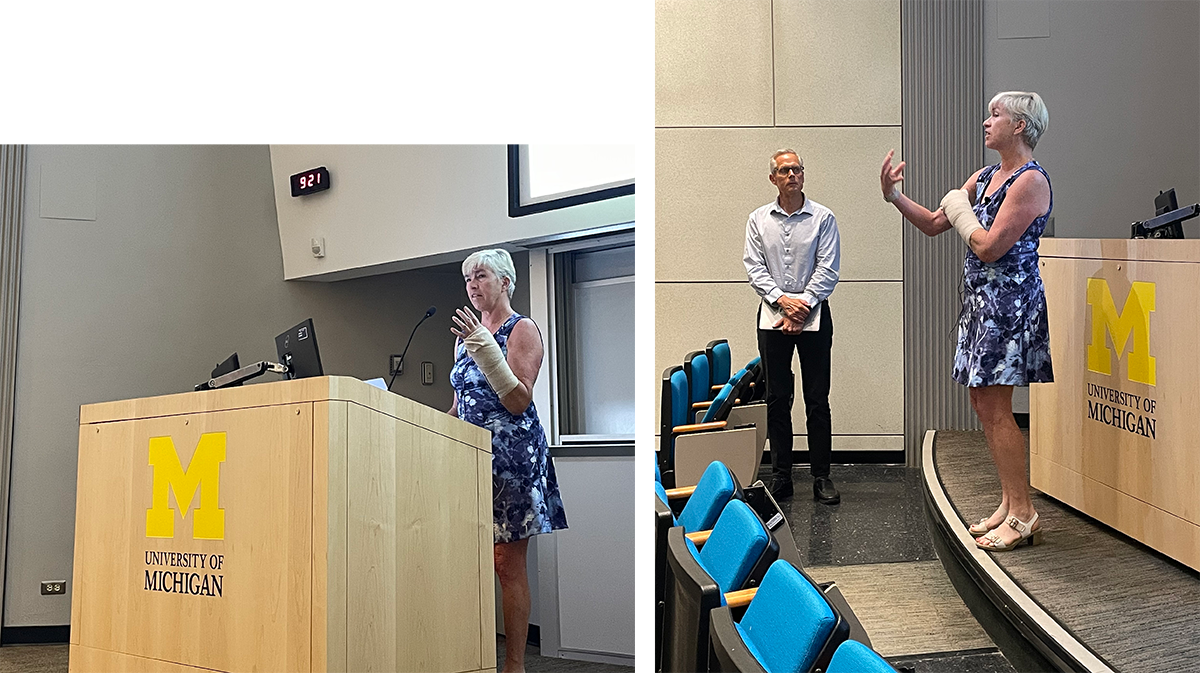
JoAnne Flynn, Ph.D., Distinguished Professor and Chair of the Department of Microbiology and Molecular Genetics at the University of Pittsburg, presents her research on TB vaccines.
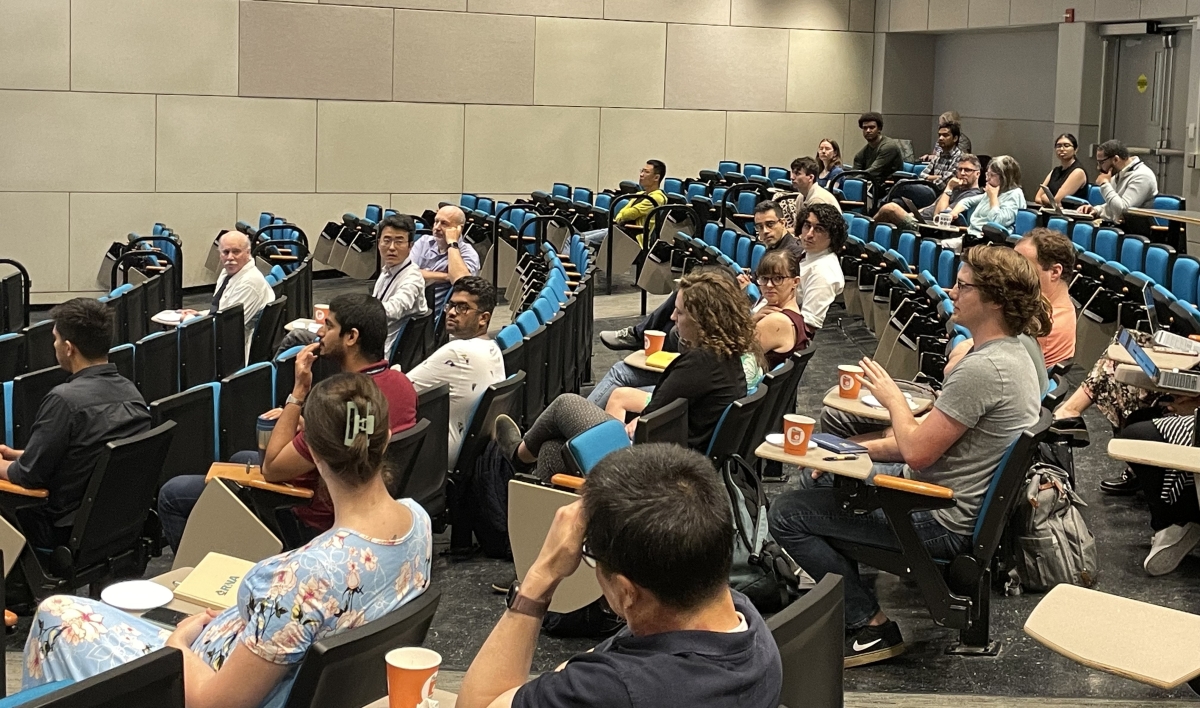
Dr. Flynn’s Q&A with audience
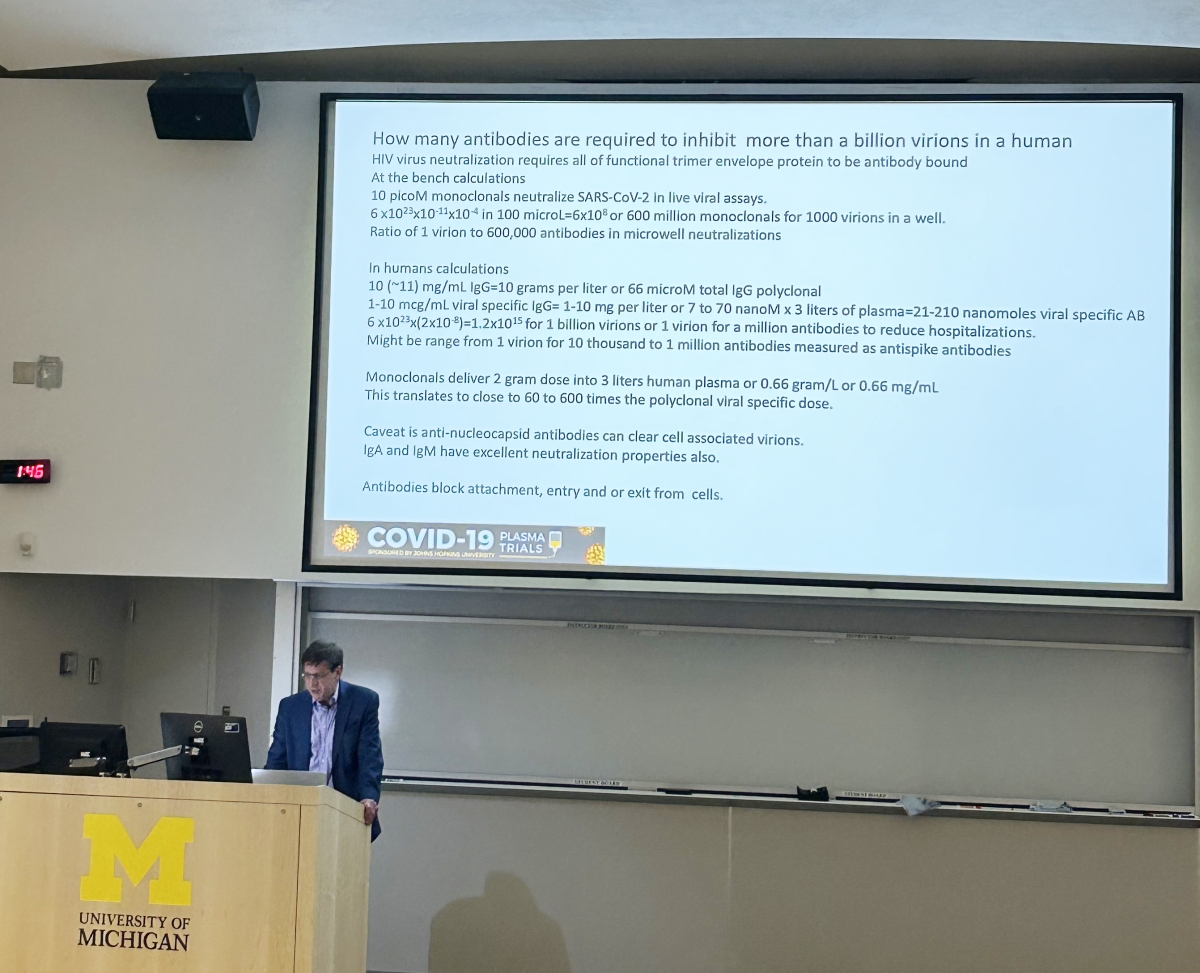
David Sullivan Jr., M.D., Professor in the Department of Microbiology and Immunology at Johns Hopkins University, presents his research on COVID-19 and antibodies.
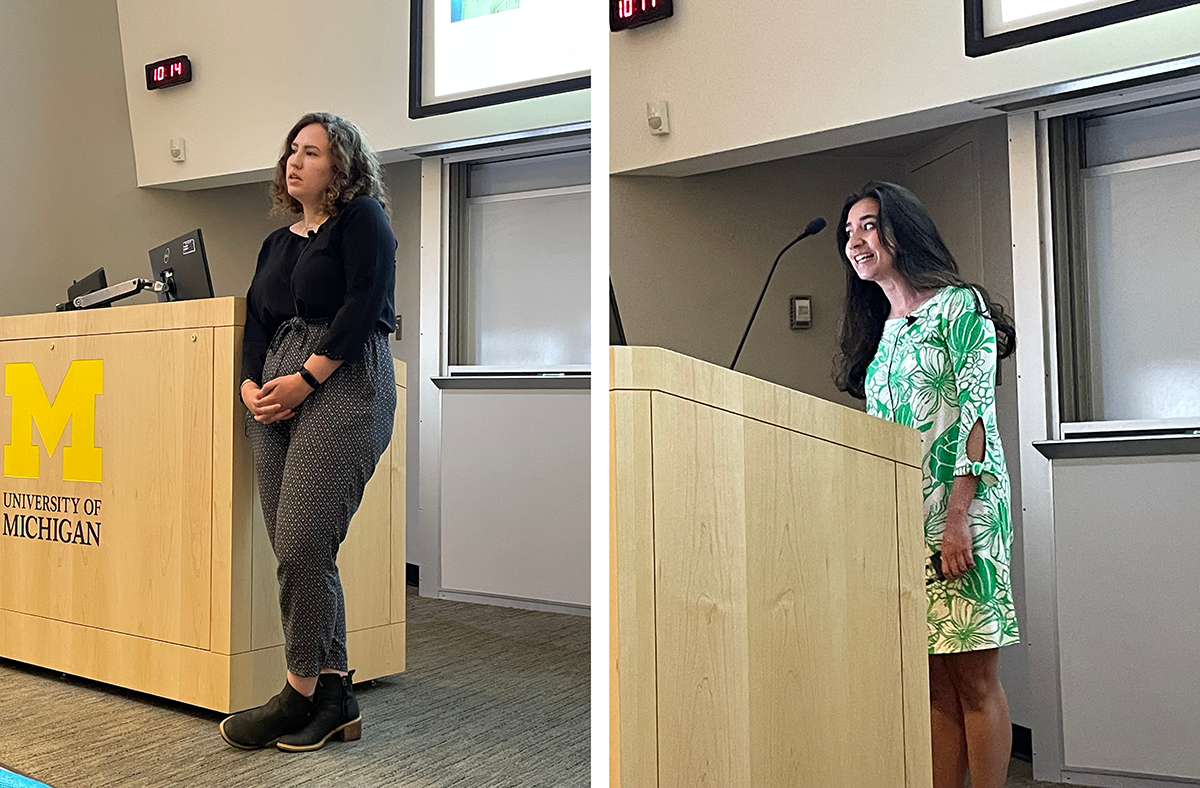
Trainees Olivia Harlow (Shenoy lab) and Katy Krupinsky (Kirschner and Lauring labs) present their research.

Professor

Professor

Professor


